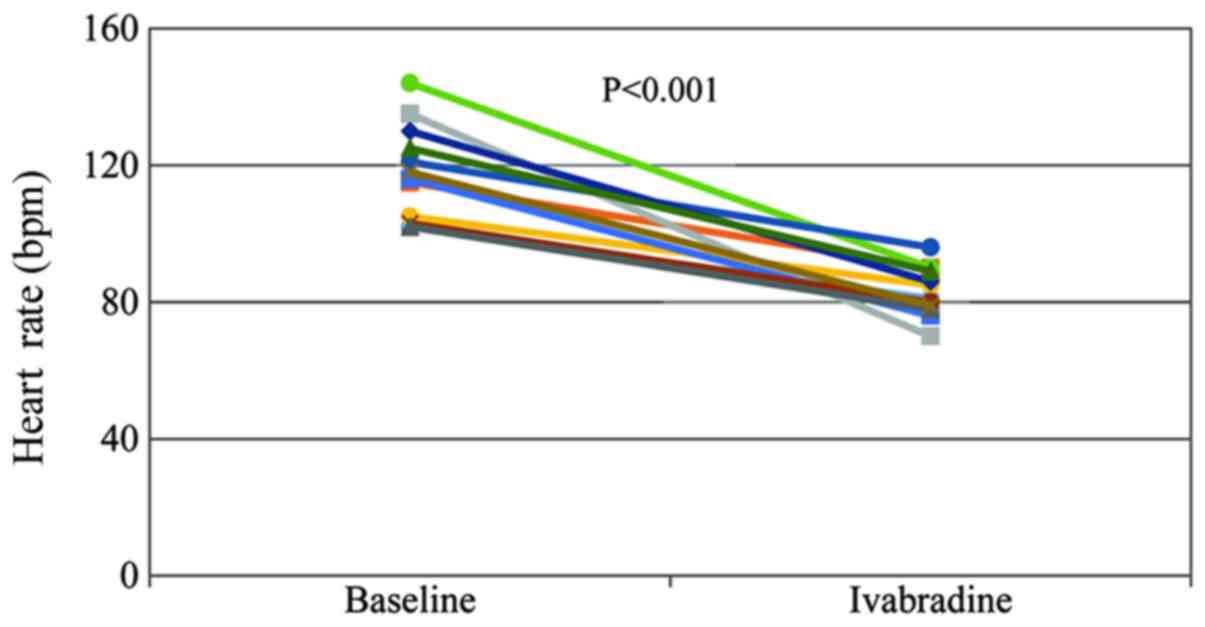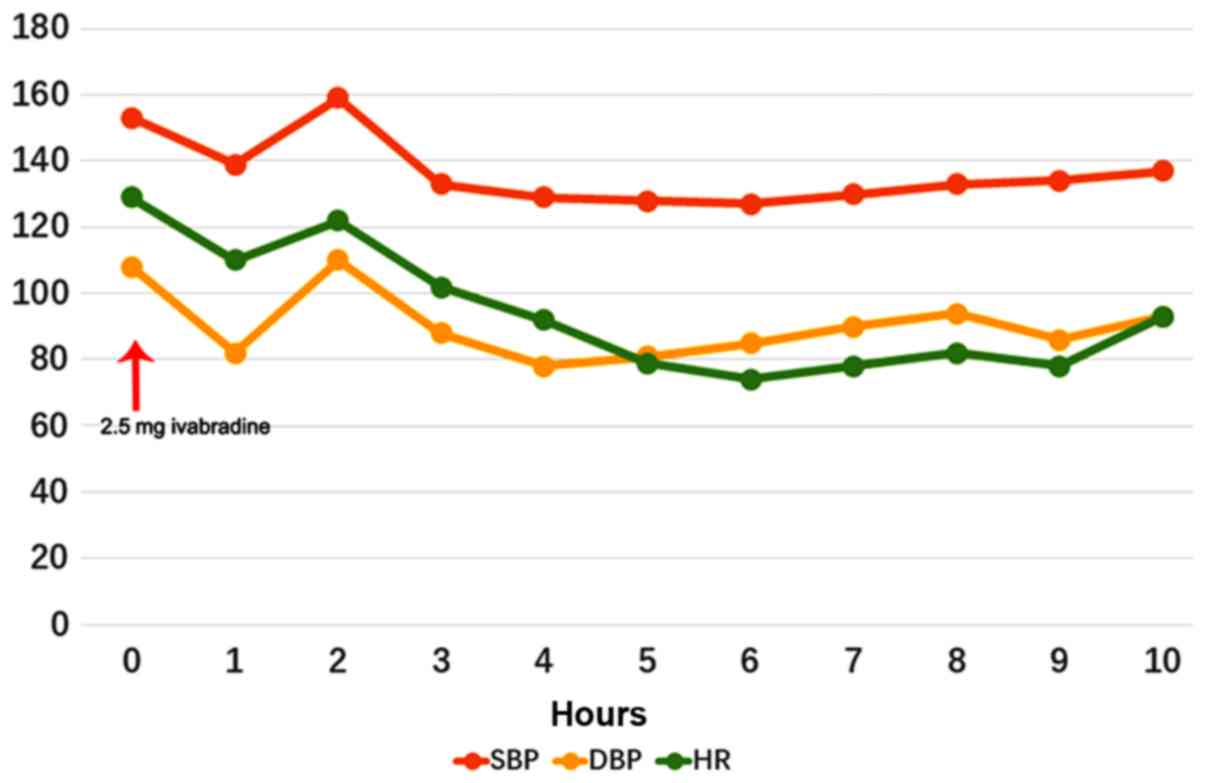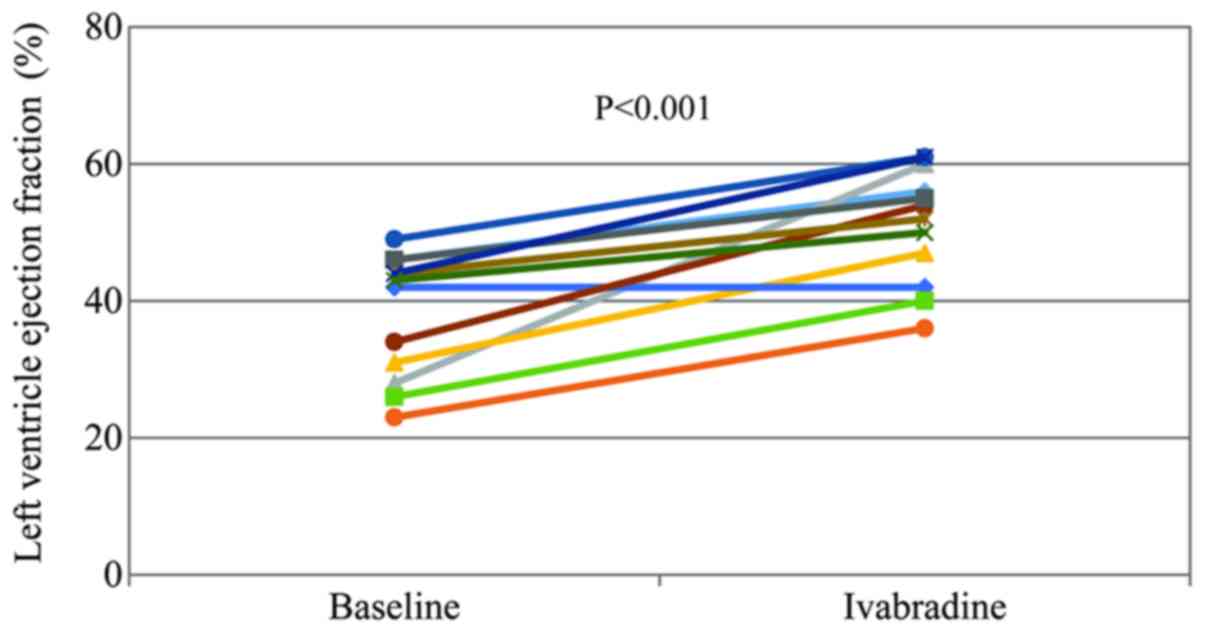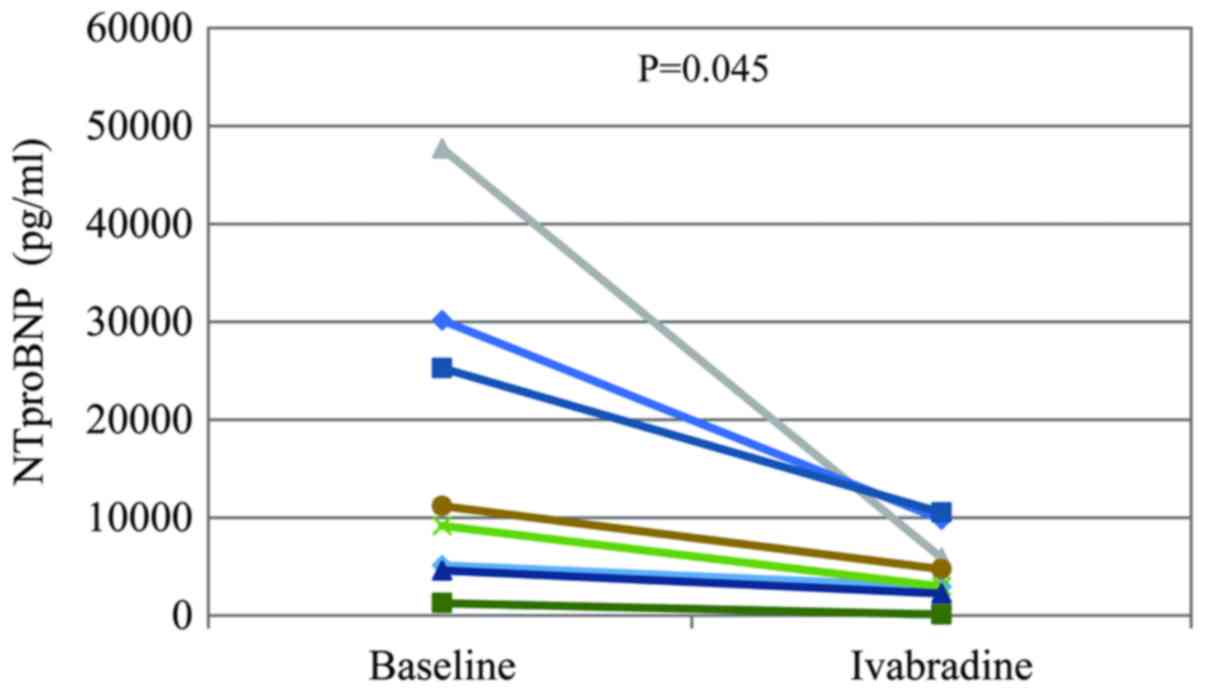|
1
|
Hollan I, Meroni PL, Ahearn JM, Cohen
Tervaert JW, Curran S, Goodyear CS, Hestad KA, Kahaleh B, Riggio M,
Shields K and Wasko MC: Cardiovascular disease in autoimmune
rheumatic diseases. Autoimmun Rev. 12:1004–1015. 2013. View Article : Google Scholar : PubMed/NCBI
|
|
2
|
Mason JC and Libby P: Cardiovascular
disease in patients with chronic inflammation: Mechanisms
underlying premature cardiovascular events in rheumatologic
conditions. Eur Heart J. 36:482–489c. 2015. View Article : Google Scholar : PubMed/NCBI
|
|
3
|
Sarzi-Puttini P, Atzeni F, Gerli R,
Bartoloni E, Doria A, Barskova T, Matucci-Cerinic M, Sitia S,
Tomasoni L and Turiel M: Cardiac involvement in systemic rheumatic
diseases: An update. Autoimmun Rev. 9:849–852. 2010. View Article : Google Scholar : PubMed/NCBI
|
|
4
|
Seferovic PM, Ristic AD, Maksimovic R,
Simeunovic DS, Ristic GG, Radovanovic G, Seferović D, Maisch B and
Matucci-Cerinic M: Cardiac arrhythmias and conduction disturbances
in autoimmune rheumatic diseases. Rheumatology (Oxford). 4 (Suppl
45):iv39–iv42. 2006. View Article : Google Scholar
|
|
5
|
Mueller KAL, Heinzmann D, Klingel K,
Fallier-Becker P, Kandolf R, Kilias A, Walker-Allgaier B, Borst O,
Kumbrink J, Kirchner T, et al: Histopathological and immunological
characteristics of tachycardia-induced cardiomyopathy. J Am Coll
Cardiol. 69:2160–2172. 2017. View Article : Google Scholar : PubMed/NCBI
|
|
6
|
Gupta S and Figueredo VM: Tachycardia
mediated cardiomyopathy: Pathophysiology, mechanisms, clinical
features and management. Int J Cardiol. 172:40–46. 2014. View Article : Google Scholar : PubMed/NCBI
|
|
7
|
Jeong YH, Choi KJ, Song JM, Hwang ES, Park
KM, Nam GB, Kim JJ and Kim YH: Diagnostic approach and treatment
strategy cin tachycardia-induced cardiomyopathy. Clin Cardiol.
31:172–178. 2008. View Article : Google Scholar : PubMed/NCBI
|
|
8
|
Thollon C, Cambarrat C, Vian J, Prost JF,
Peglion JL and Vilaine JP: Electrophysiological effects of S 16257,
a novel sino-atrial node modulator, on rabbit and guinea-pig
cardiac preparations: Comparison with UL-FS 49. Br J Pharmacol.
112:37–42. 1994. View Article : Google Scholar : PubMed/NCBI
|
|
9
|
Bucchi A, Baruscotti M and DiFrancesco D:
Current-dependent block of rabbit sino-atrial node I(f) channels by
ivabradine. J Gen Physiol. 120:1–13. 2002. View Article : Google Scholar : PubMed/NCBI
|
|
10
|
Swedberg K, Komajda M, Bohm M, Borer JS,
Ford I, Dubost-Brama A, Lerebours G and Tavazzi L; SHIFT
Investigators, : Ivabradine and outcomes in chronic heart failure
(SHIFT): A randomised placebo-controlled study. Lancet.
376:875–885. 2010. View Article : Google Scholar : PubMed/NCBI
|
|
11
|
Hidalgo FJ, Anguita M, Castillo JC,
Rodríguez S, Pardo L, Durán E, Sánchez JJ, Ferreiro C, Pan M, Mesa
D, et al: Effect of early treatment with ivabradine combined with
beta-blockers versus beta-blockers alone in patients hospitalised
with heart failure and reduced left ventricular ejection fraction
(ETHIC-AHF): A randomised study. Int J Cardiol. 217:7–11. 2016.
View Article : Google Scholar : PubMed/NCBI
|
|
12
|
Kim CH, Al-Kindi SG, Jandali B, Askari AD,
Zacharias M and Oliveira GH: Incidence and risk of heart failure in
systemic lupus erythematosus. Heart. 103:227–233. 2017. View Article : Google Scholar : PubMed/NCBI
|
|
13
|
Dhakal BP, Kim CH, Al-Kindi SG and
Oliveira GH: Heart failure in systemic lupus erythematosus. Trends
Cardiovasc Med. 28:187–197. 2018. View Article : Google Scholar : PubMed/NCBI
|
|
14
|
Wolfe F and Michaud K: Heart failure in
rheumatoid arthritis: Rates, predictors, and the effect of
anti-tumor necrosis factor therapy. Am J Med. 116:305–311. 2004.
View Article : Google Scholar : PubMed/NCBI
|
|
15
|
Myasoedova E, Crowson CS, Nicola PJ,
Maradit-Kremers H, Davis JM III, Roger VL, Therneau TM and Gabriel
SE: The influence of rheumatoid arthritis disease characteristics
on heart failure. J Rheumatol. 38:1601–1606. 2011. View Article : Google Scholar : PubMed/NCBI
|
|
16
|
Mantel A, Holmqvist M, Andersson DC, Lund
LH and Askling J: Association between rheumatoid arthritis and risk
of ischemic and nonischemic heart failure. J Am Coll Cardiol.
69:1275–1285. 2017. View Article : Google Scholar : PubMed/NCBI
|
|
17
|
Kyaw H, Misra D, Mani MM, Park WJ and
Shinnar M: Unusual cardiac involvement in granulomatosis with
polyangiitis manifesting as acute congestive heart failure. Anatol
J Cardiol. 18:158–160. 2017.PubMed/NCBI
|
|
18
|
Lundberg IE: The heart in dermatomyositis
and polymyositis. Rheumatology (Oxford). 4 (Suppl 45):iv18–iv21.
2006. View Article : Google Scholar
|
|
19
|
Kahan A and Allanore Y: Primary myocardial
involvement in systemic sclerosis. Rheumatology (Oxford). 4 (Suppl
45):iv14–iv17. 2006. View Article : Google Scholar
|
|
20
|
Chen J, Tang Y, Zhu M and Xu A: Heart
involvement in systemic lupus erythematosus: A systemic review and
meta-analysis. Clin Rheumatol. 35:2437–2448. 2016. View Article : Google Scholar : PubMed/NCBI
|
|
21
|
Wang CR, Tsai YS and Li WT: Lupus
myocarditis receiving the rituximab therapy-a monocentric
retrospective study. Clin Rheumatol. 37:1701–1707. 2018. View Article : Google Scholar : PubMed/NCBI
|
|
22
|
Pascual Izco M, Alonso Salinas GL,
Sanmartin Fernandez M, Del Castillo Carnevalli H, Jimenez Mena M,
Camino Lopez A and Zamorano Gómez JL: Clinical experience with
ivabradine in acute heart failure. Cardiology. 134:372–374. 2016.
View Article : Google Scholar : PubMed/NCBI
|
|
23
|
Fox K, Ford I, Steg PG, Tendera M,
Robertson M and Ferrari R; BEAUTIFUL Investigators, : Relationship
between ivabradine treatment and cardiovascular outcomes in
patients with stable coronary artery disease and left ventricular
systolic dysfunction with limiting angina: A subgroup analysis of
the randomized, controlled BEAUTIFUL trial. Eur Heart J.
30:2337–2345. 2009. View Article : Google Scholar : PubMed/NCBI
|
|
24
|
Fox K, Ford I, Steg PG, Tardif JC, Tendera
M and Ferrari R; SIGNIFY Investigators, : Ivabradine in stable
coronary artery disease without clinical heart failure. N Engl J
Med. 371:1091–1099. 2014. View Article : Google Scholar : PubMed/NCBI
|
|
25
|
Tardif JC, Ponikowski P and Kahan T;
ASSOCIATE Investigators, : Effects of ivabradine in patients with
stable angina receiving beta-blockers according to baseline heart
rate: An analysis of the ASSOCIATE study. Int J Cardiol.
168:789–794. 2013. View Article : Google Scholar : PubMed/NCBI
|


















